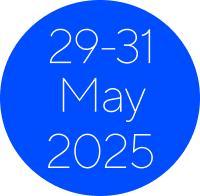Chair: Erin Keough (Canada)
Speakers: Sidhi Mohapatra (India), Adesola Odole (Nigeria), Ruby Chin A Fat (Suriname)
-
Learn about other perspectives and frameworks on disability and identify ways to cultivate and integrate culturally-sensitive, safe and appropriate care for individuals living with disability.
-
Amplify the voices of persons with disability as major stakeholders in climate justice and hear about some underrepresented perspectives on disability.
-
Feel inspired and understand how to apply a critical lens to core physiotherapy beliefs and to yourself within your local context.
Western culture had and continues to have a predominant influence on the structure of the physiotherapy practice. Often, we use the term disability to describe something that prevents us from participating in our daily activities. However, attitudes and beliefs towards disability vary between and within countries, posing significant challenges to optimizing and (re)integration into society, which can impact the outcomes for the individuals with the disability. Rehabilitation outcomes can be heavily influenced by both the clients and the practitioners perspectives of health, healing, and goals. The outcomes of this can vary drastically from culture to culture. As practitioners, we must acknowledge that the understanding of disability forms the foundation of our physiotherapy practice, making it imperative to reflect on diverse perspectives of disability.
Our session was inspired by a group of practitioners from around the world who are reconstructing the global lens of disability and reintegrating culturally sensitive and safe practices through education, mentorship, and collaboration. By decolonizing and deconstructing the disability paradigm within physiotherapy, practitioners can better address the socio-cultural, economic, and political factors that shape disability experiences globally. Our session advocates for a shift away from a mono-cultural Western view towards embracing diverse perspectives from the global south, global north, and Indigenous peoples of their territories in the pursuit of inclusive and patient-centered healthcare. It emphasizes the need to deconstruct many westernized lenses and increase visibility towards a lesser known physiotherapy practice to allow for different frameworks to be available for practitioners.
Furthermore, this session highlights the pressing need to address the interaction of disability healthcare and climate change, an area that has received limited attention globally. Our environment plays a major role in determining our abilities and persons with disabilities face the compounded challenges of environmental/climate change and their conditions, necessitating a paradigm shift towards a more abundant and proactive physiotherapy practice.
Our session aims to highlight these key points while also inspiring the shift towards different frameworks that are necessary for culturally safe practices and for disability advocacy. We are amplifying the voices of those living with disability and challenging biases within physiotherapy practice, academia, and research. There is both a significance and a need for breaching from our current global perspectives to a more diverse and inclusive practice. Incorporating storytelling, traditional healing methods, community-based approach can help evolve the physiotherapy practice to address the complex and varied needs of individuals with disabilities through different cultures – ultimately contributing to more inclusive and effective healthcare practices worldwide.
- Dalboni, Gláucia L., et al. “Conceptions of disability among physiotherapists: an exploratory qualitative study.” Physiotherapy Theory and Practice 39.8 (2023): 1662-1671.
- Amosun, S., et al. “Undergraduate physiotherapy education in Malawi–The views of students on disability.” Malawi Medical Journal 25.2 (2013): 40-44.
- Roush, Susan E., and Nancy Sharby. “Disability reconsidered: the paradox of physical therapy.” Physical therapy 91.12 (2011): 1715-1727.
- Chiang, Jessica L., et al. “What is ‘disability’? Exploring the conceptions of internationally educated learners in a Canadian physical therapy bridging program.” Physiotherapy Theory and Practice 40.2 (2024): 276-287.
- Pather, Joan, et al. “Physiotherapists’ perceptions of disability awareness in KwaZulu-Natal.” Global Journal of Health Science 10.12 (2018): 1-83.
- Main, Catherine, Antoinette McCallin, and Naumai Smith. “Cultural safety and cultural competence: what does this mean for physiotherapists?.” New Zealand Journal of Physiotherapy 34.3 (2006).
- Lurch, Stephanie, et al. “Challenging power and unearned privilege in physiotherapy: lessons from Africa.” Frontiers in Rehabilitation Sciences 4 (2023).
- Hunt, Matthew. “Taking culture seriously: considerations for physiotherapists.” Physiotherapy 93.3 (2007): 229-232.
- Ramklass, Serela. “A framework for caring in physiotherapy education and practice.” South African Family Practice 57.2 (2015): 1-5.
- Akinpelu A, Odunaiya NA, Odole, AC (2015): Patient’s Perspective on Culture, Disability and Exercise: Perspectives from Nigeria in Patricia Smith (2015): Disability and Culture: An International and Inter-professional Perspective, Common Ground Publishing, Champaign, Illinois, USA ISBN 978-1-61229-494-0 Chapter 9. 85-97
See the 24 focused symposia to be presented at congress.
Find out who the key speakers at congress will be.
Find out which clinical topics will be covered in these discussion-based seminars.




